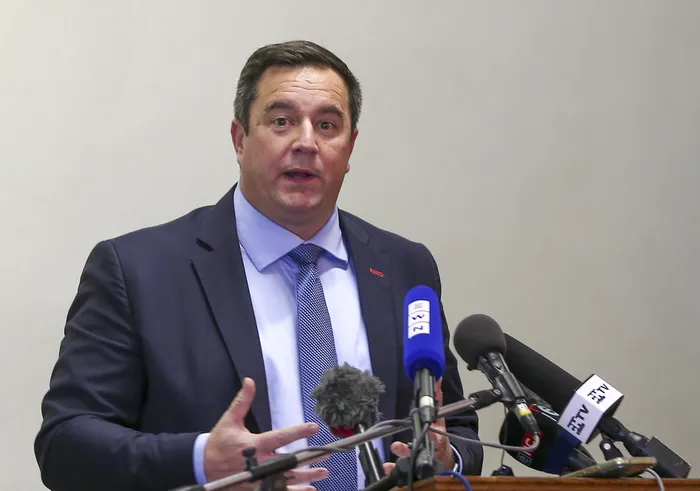DA's Survival in Government at Stake as Tensions Rise over BELA Act Amendments

South Africa - Cape Town - 12 - September - 2024 - DA leader John Steenhuisen outlined his party’s role and objectives within the Government of National Unity by addressing the Cape Town Press Club, Steenhuisen said if the current government doesn't get things right now, they will be handing over the Unions Buildings to opposition parties. Photographer: Leon Lestrade / Independent Newspapers.
THE stability of the Government of National Unity (GNU) appears precarious as the Democratic Alliance (DA) has signalled that its continued partnership with the African National Congress (ANC) hinges on amendments to specific clauses in the Basic Education Laws Amendment (BELA) Act.
The warning comes in the wake of mounting pressure from other political entities, notably the Free Market Foundation and AfriForum, with calls for the DA to reassess its position should President Cyril Ramaphosa not accede to these demands.
DA spokesperson Willie Aucamp articulated the party’s fear that the current governing relationship could be at risk if the ANC signs into law the controversial school admission and language clauses without modifications.
“We are committed to making the GNU work, but will not do that at all cost as the ANC must realise that it did not win the elections but they are co-governing with us,” Aucamp emphasised.
The concerns voiced by the DA highlight the alleged failure of the ANC to honour the foundational agreement that culminated in the GNU’s formation.
Aucamp pointed out that the agreement required a significant level of consensus - specifically, 60% approval from the governing parties before major decisions were enacted, alongside the establishment of a dispute resolution committee to address disagreements.
He lamented that Ramaphosa had signed the BELA Bill on September 13 without involving that committee, a step which could reportedly have mitigated some of the existing tensions.
Due to the DA’s insistence, Ramaphosa postponed the signing of the contentious language and admissions policies for an additional three months to facilitate further consultations involving both governing parties and civil society representatives.
Aucamp said he hoped that these discussions would yield positive negotiations but warned that if the ANC attempted to play hardball or ignore the seriousness of the consultation period, there would be resistance from the DA.
Aucamp noted, “If the ANC thinks it can play with time and that after the three months everybody would roll-over, we have a surprise for them, we will not accept that.”
He reiterated the need for the ANC to engage in discussions with integrity, urging them to showcase their commitment to collaboration for the benefit of South Africa.
Notable figures from the Free Market Foundation echoed Aucamp’s sentiments, suggesting that any failure from the ANC to compromise could compel the DA to withdraw from the GNU altogether.
Nicholas Woode-Smith, the foundation’s associate, urged the DA to consider this option seriously, underlining that their escape from the GNU may be the only method to salvage their remaining credibility.
Woode-Smith expressed concern that the language amendment not only threatens to undermine Afrikaans-speaking children’s rights to receive an education in their mother tongue but may also serve more nefarious goals.
He cautioned that BELA could lead to the erosion of cultural rights under the guise of transformation, calling on the DA and Freedom Front Plus (FF+) to remain resolute in their challenge against this perceived infringement, including potential legal action.
In a statement, DA leader John Steenhuisen articulated the party's intent to remain in the GNU, warning that if they exit, the nation could abandon itself to more radical factions like the Economic Freedom Fighters (EFF) and Umkhonto Wesizwe Party (MKP).